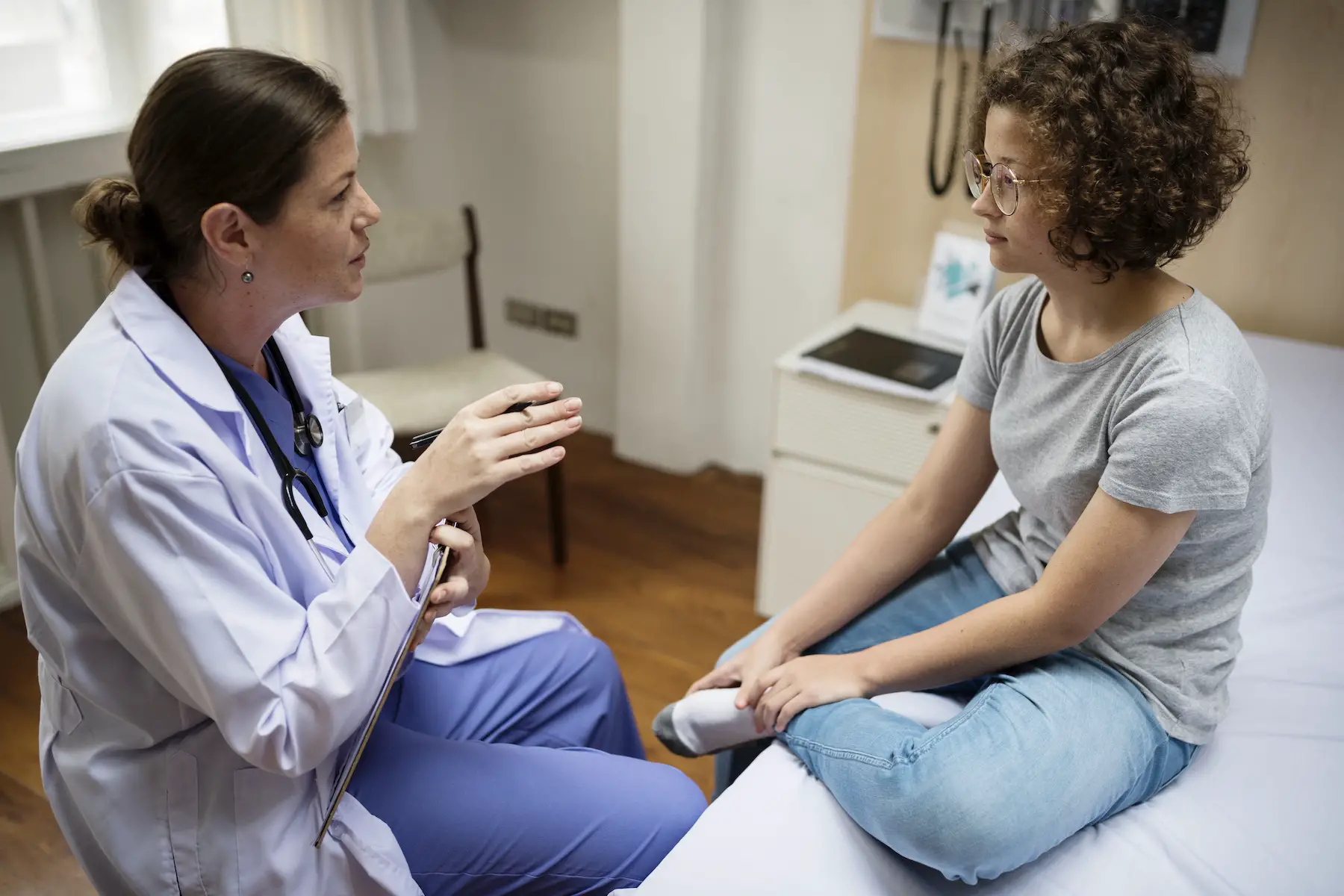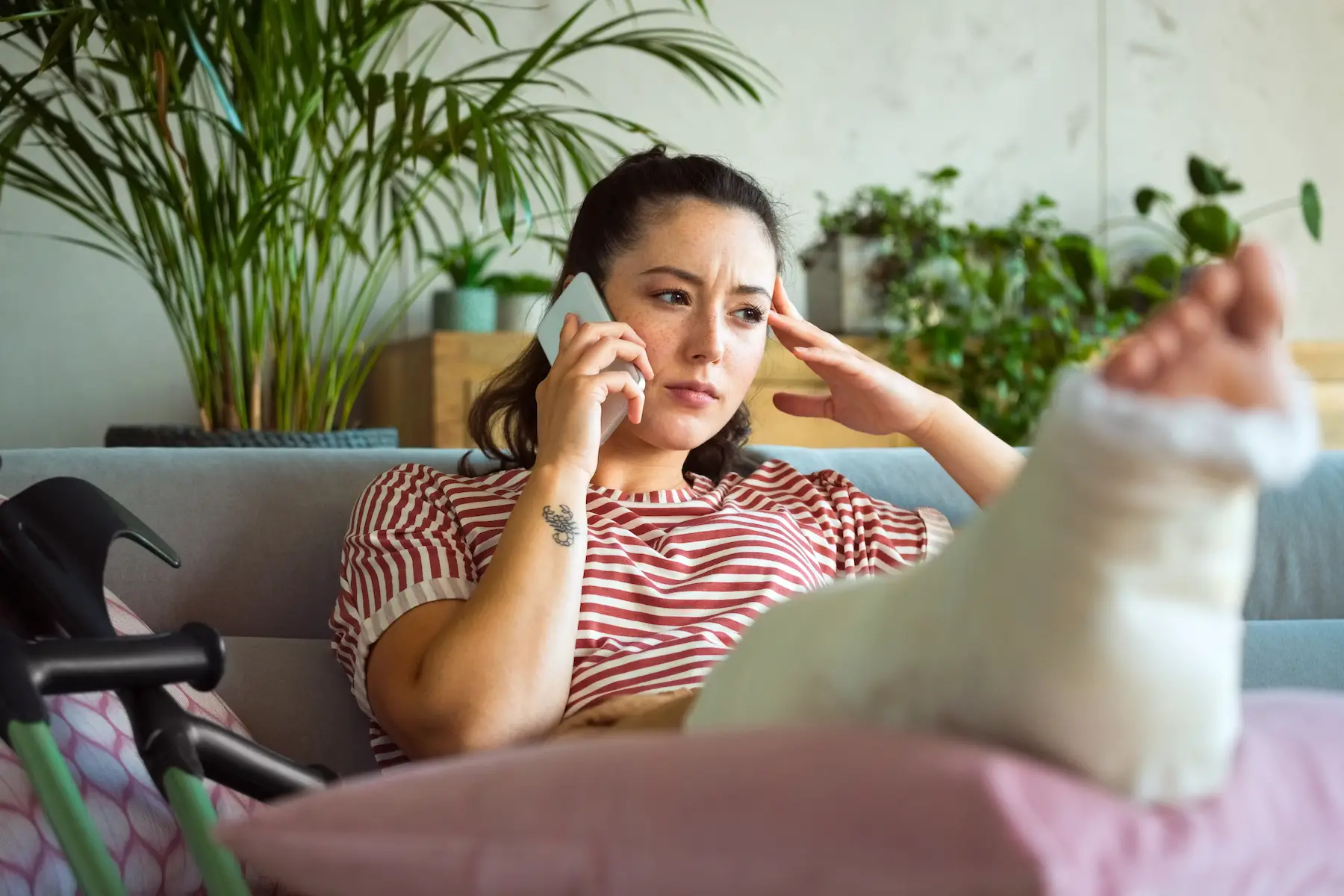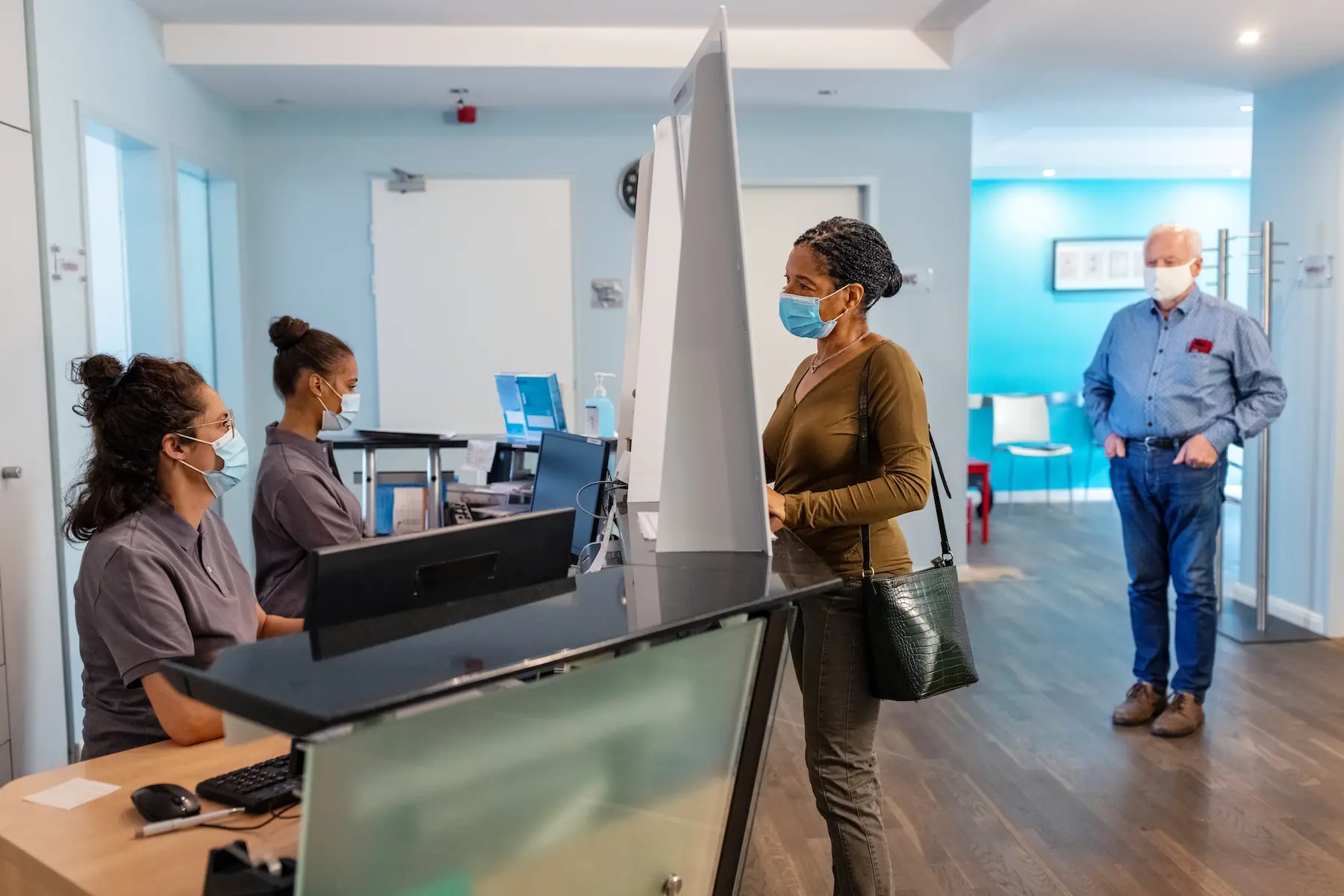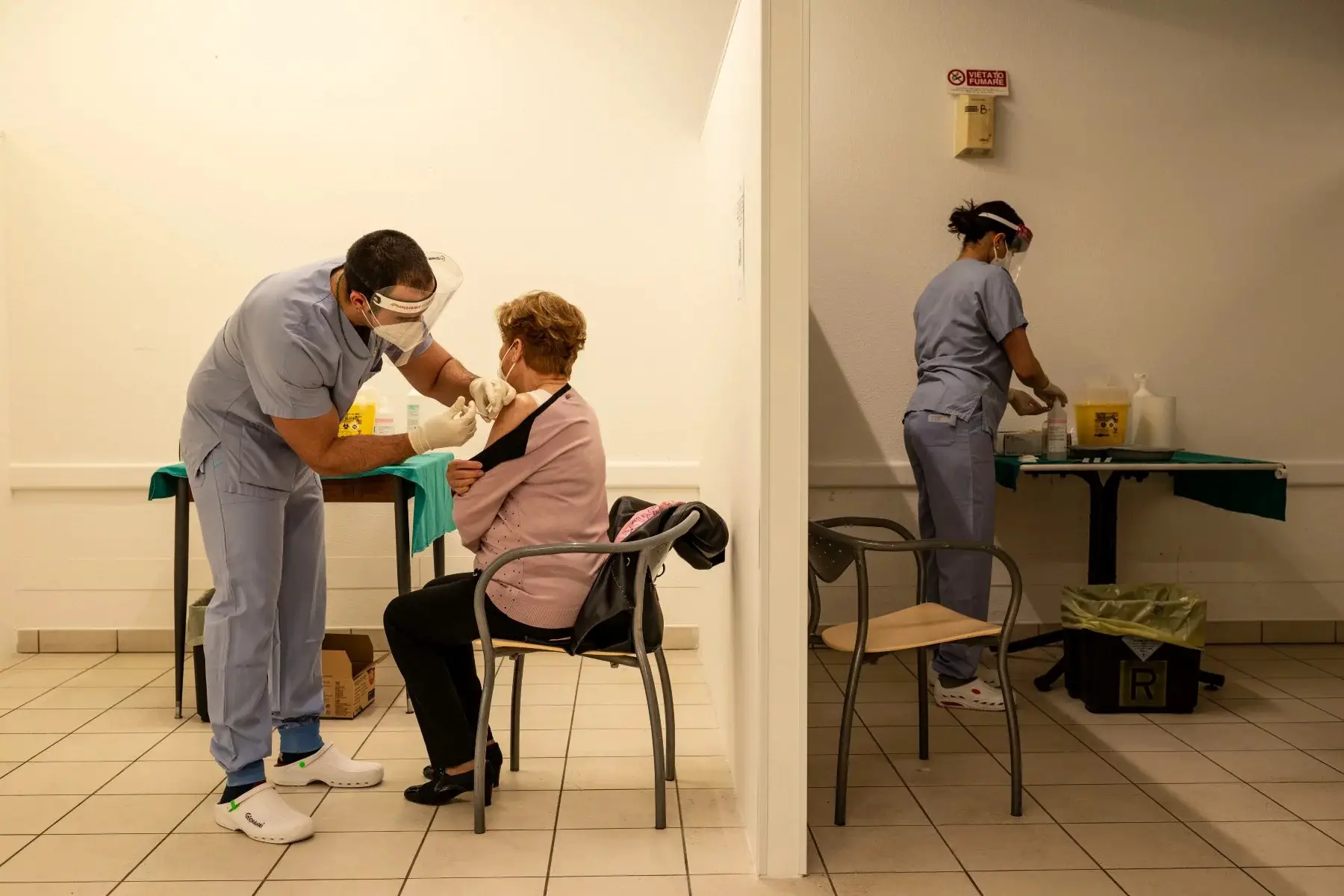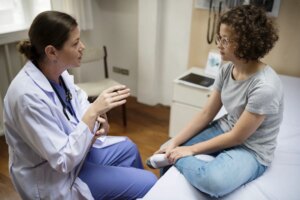Welcoming a new family member can bring everything from excitement to anxiety, especially if you’re not in your home country. Between figuring out doctors’ visits and birthing plans and baby-proofing your home, it can all feel overwhelming. Fortunately, with the right preparation, having a baby in Italy can be a relatively straightforward process. Read on for information about:
- Pregnancy and childbirth in Italy
- Accessing Italian maternity services
- Insurance for maternity costs in Italy
- Pregnancy testing in Italy
- Italian prenatal care
- Giving birth in Italy
- Italian post-natal care
- Registering a birth in Italy
- Non-residents, visitors, and tourists having a baby in Italy
- Parental leave in Italy
- Italian child benefits
- Useful resources
Cigna Global
Expecting a baby in Italy? Enjoy peace of mind with Cigna Global’s private healthcare. Gain access to top maternity care, pediatricians, specialists, and a global network tailor-made for your growing family. Start your parenting journey with confidence – Cigna Global has you covered.
Pregnancy and childbirth in Italy
The national birth rate in Italy is among the lowest in the world, at 1.2 per woman. For those who do have children, 98.8% of births take place in a hospital, and the country has one of the highest cesarean rates in Europe.
The Italian public health system, Servizio Sanitario Nazionale (SSN), covers healthcare relating to pregnancy and childbirth. However, while public healthcare in Italy is of a high standard, waiting lists can be long.
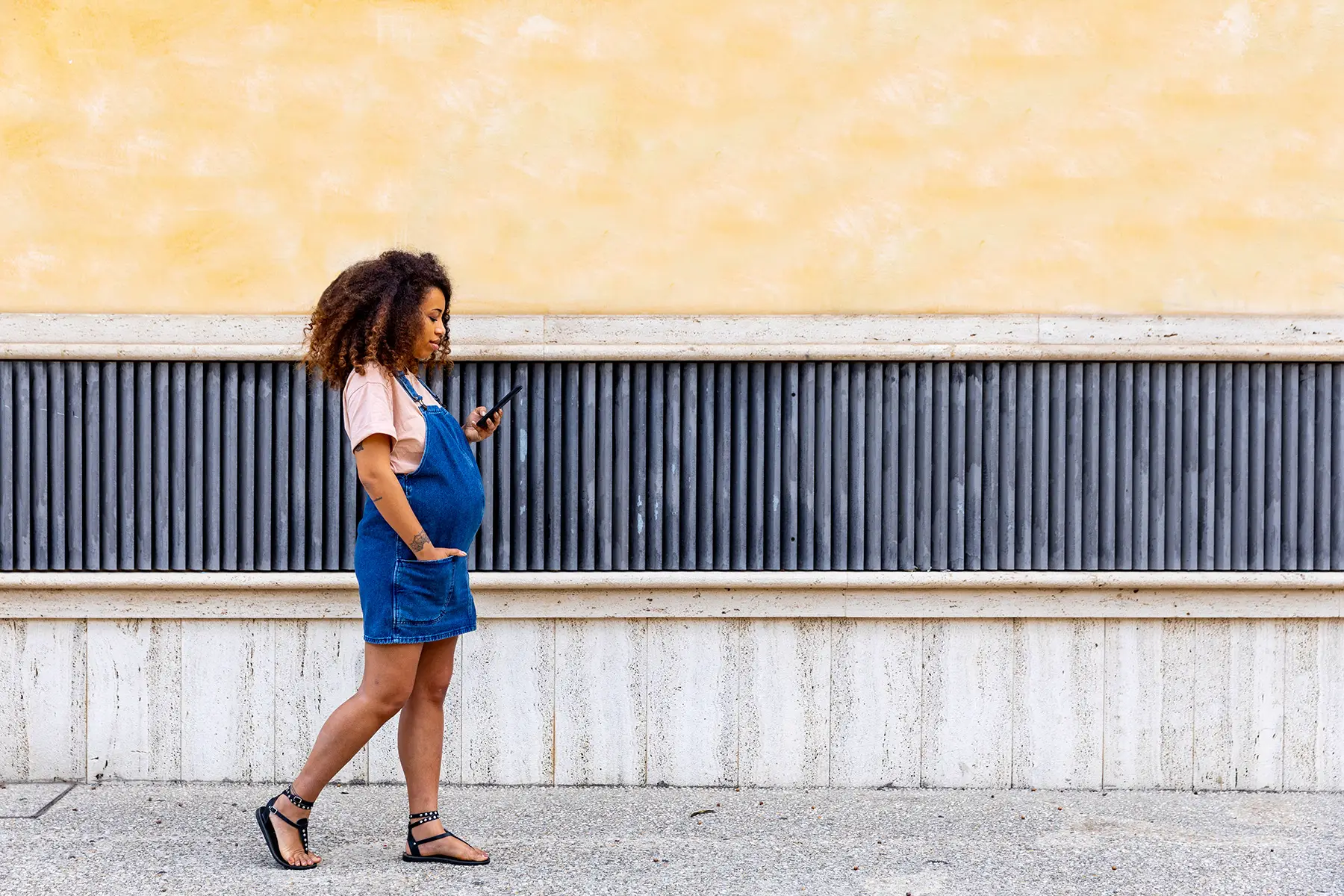
Once a doctor has confirmed your pregnancy, you can expect your medical visits, diagnostics, and any treatments to be free of charge. OB/GYNs generally oversee births, however, if you are working in the public sector, you will not get to choose the doctor that delivers your baby. This is one reason why two-thirds of women in Italy opt for a private gynecologist through private insurance.
Accessing Italian maternity services
Anyone in Italy enrolled in the SSN can access public maternity services for free. These are organized through your local consultorio familiare (family planning). This also includes people with irregular legal status in Italy, like asylum-seekers or those who live in a reception center. Because having a baby is considered an additional vulnerability, the Italian state mandates that anyone who needs maternal care should be able to receive it.
Insurance for maternity costs in Italy
When planning to have a baby, you’ll find that many of the costs are covered by public insurance. These include:
- Check-ups around once a month during the pregnancy
- Some prenatal tests and examinations
- At least two ultrasounds
- Delivery
- Primary care after birth
Although these services would completely cover your basic pregnancy needs, some people choose to get private insurance. Some reasons include:
- Continuity of care – seeing the same doctor throughout your entire pregnancy
- Shorter wait times for doctors and midwives
- Wider access to lactation consultants and doulas
- More extensive postpartum support
Some of the top international health insurance companies operating in Italy include:
Pregnancy testing in Italy
Pregnancy tests are widely available in Italian pharmacies, clinics, doctors’ offices, and hospitals. In a pharmacy, tests are quite affordable, ranging from €5 to €20. Although you cannot claim this through insurance, the SSN covers the costs of your pregnancy-related doctor appointments.
Not long after taking your at-home pregnancy test, you should get your pregnancy confirmed. You can easily do this through an appointment with your primary care doctor.
Italian prenatal care
Antenatal appointments
Your next step is to make an appointment with your local consultorio familiare, with your proof of pregnancy. Be sure to do this within the first ten weeks. The consultorio familiare primarily handles medical needs related to sexual health, fertility, pregnancy, menopause, and post-menopause. The staff here may include midwives, gynecologists, psychologists, and social workers. Depending on the region and whether you are high or low-risk, you may have most sessions with a midwife or gynecologist.
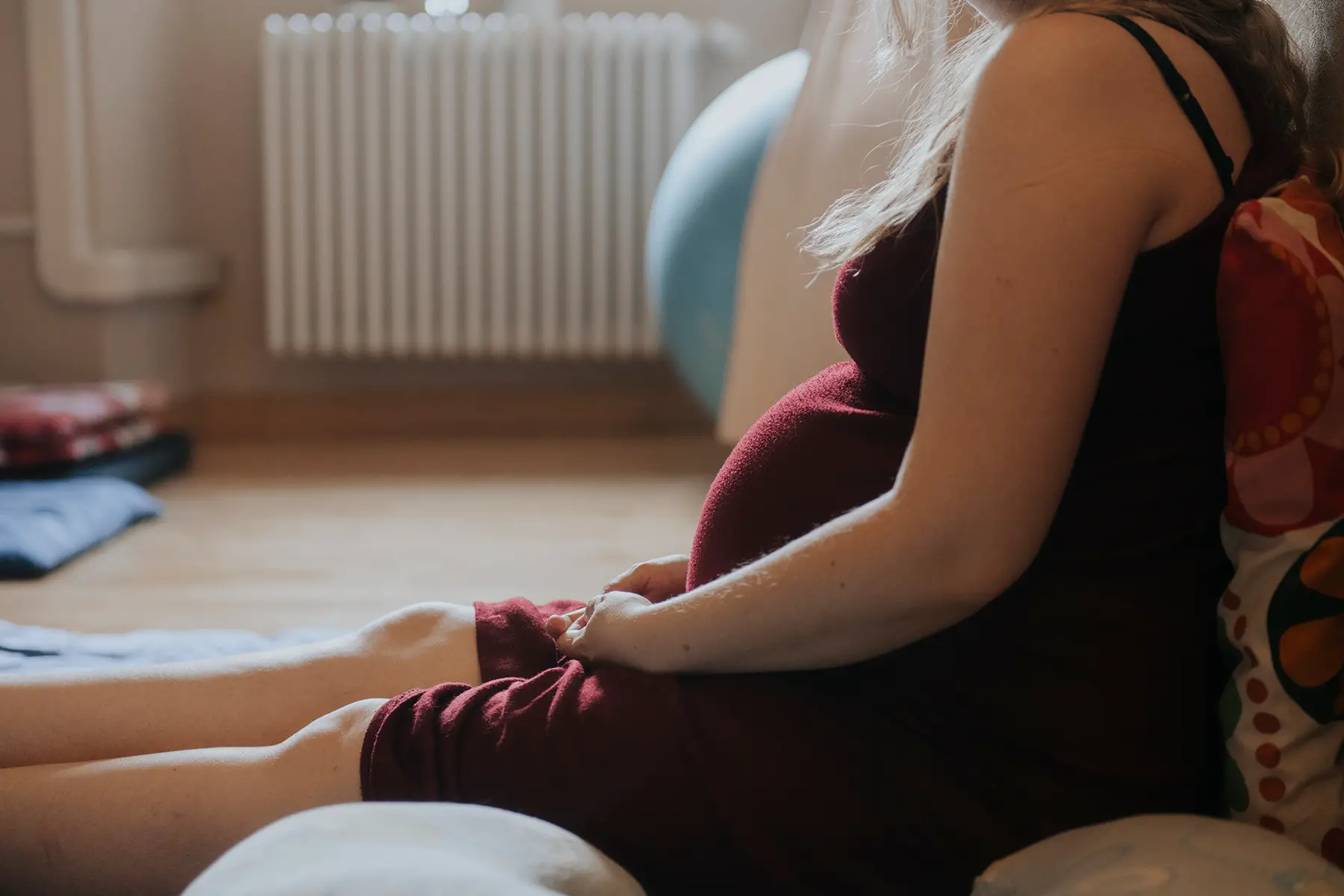
At your first appointment, the provider will study your medical history and that of the other parent. They will also discuss any concerns and map out key milestones for ultrasounds, scans, and tests. Depending on the region, you may receive a libretto di gravidanza (pregnancy booklet) at this point. Otherwise, the consultorio will schedule a separate appointment to fill it out.
Be sure to ask questions, especially about how to get in touch between visits. This is important because many consultorios only have limited hours for phone calls.
While it is increasingly popular for expectant mothers to have doulas (in Italian) with them to support them through their pregnancy, the SSN does not cover the cost. Those looking to have a doula will need to look in the private sphere, such as through Bellies Abroad. Alternately, if you want to find English-speaking gynecologists, Doctors in Italy is a great place to start.
Scans, tests, and checks
During the pregnancy, your provider will schedule several tests, and you can record your results in your libretto di gravidanza. This pregnancy booklet will be crucial during your pregnancy, and providers will use it to track milestones and testing schedules.
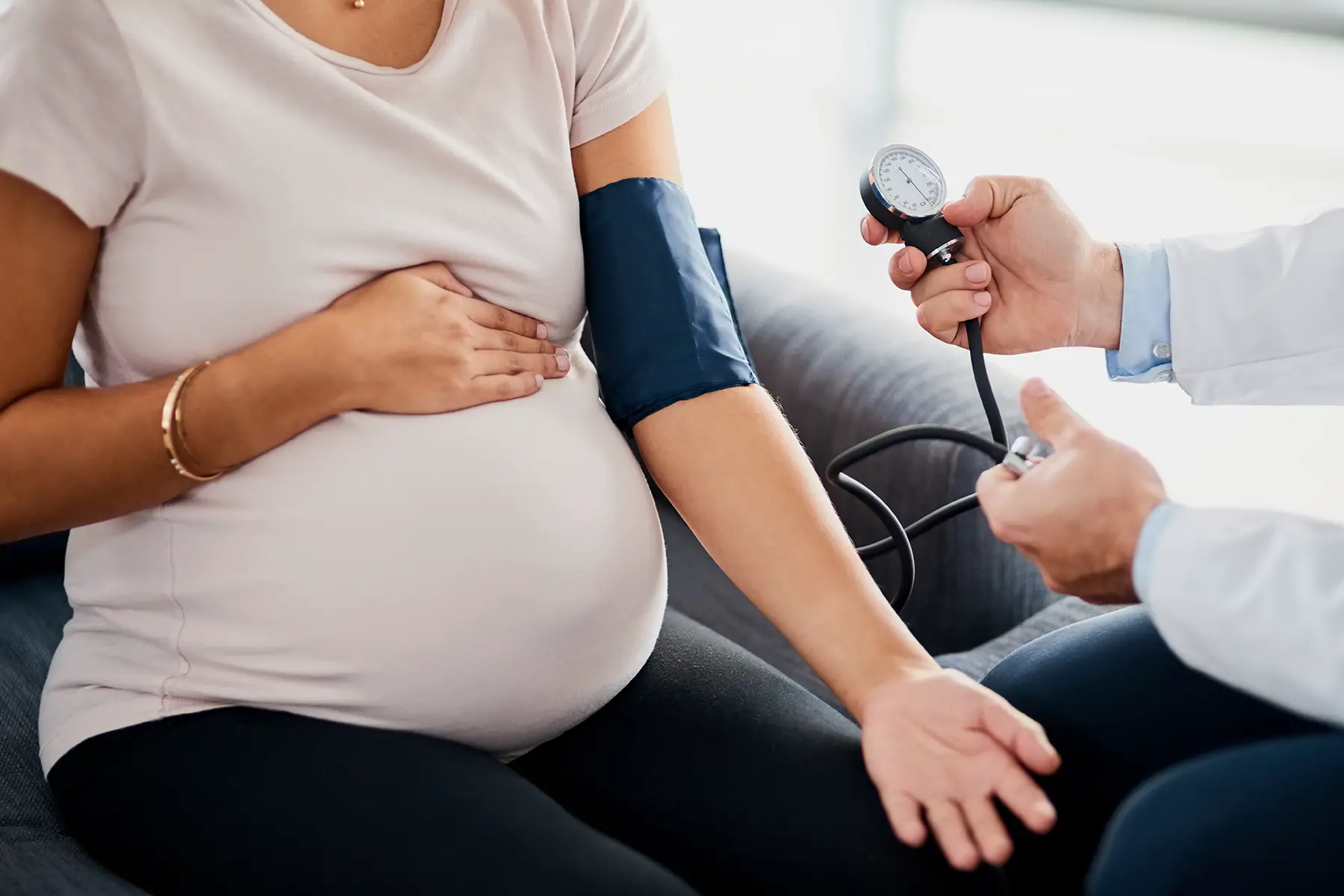
At your first trimester appointments, your provider may conduct all or some of the following tests (PDFs available in several languages at the bottom of the page):
- Weight and blood pressure check
- Blood tests to check your blood count and sugar levels, as well as RH factor, transaminases, and abnormal hemoglobin
- Infectious disease testing, such as HIV, measles, syphilis, and toxoplasmosis
- Urine tests to check for urinary tract infections throughout the pregnancy
- Pap smear/HPV test for cervical cancer early detection
- Chorionic villus sampling or villocentesis to check for prenatal diagnosis
In your second trimester appointments, your provider may recommend some or all of the following:
- Blood count to check for anemia
- Blood pressure and weight check
- Amniocentesis to sample the amniotic fluid
- Fundal height, to assess fetus growth
- Obstetric morphology ultrasound to check for fetal abnormalities
- Flu shot
- Socio-emotional assessment of the couple
Third-trimester tests and services may include:
- Weight and blood pressure check
- Blood count testing
- Infectious disease testing
- Urine test
- Vaginal swab
- Flu shot
- Whooping cough vaccine
Antenatal classes
While pregnant, you may want to enroll in classes that educate and prepare you along the journey. These classes are called corsi di accompagnamento alla nascita and can cover anything from breathing exercises to pain management during birth. The courses are available through the SSN but are organized by region and hospital. Keep in mind you may need a referral from your doctor to qualify.
Fee-based pre-birth courses are plentiful and may have shorter waitlists. So, do your homework and ask your doctor and contacts for recommendations. Then, ask individual providers for details such as topics and duration. Costs may vary but are often in the range of €200 to €300 for multi-week courses. Some examples of classes include:
- Birth accompaniment course in Padua (Padova) – organized by Padua Hospital
- Childbirth training course in Rome (Roma) – a cycle of 10 meetings at Il Melograno Centro Informazione Maternità e Nascita
Giving birth in Italy
Before labor
As your due date nears, you must consider the logistics of giving birth. Whether you have private or public insurance, you may give birth in a public hospital free of charge. Depending on the region, you may also be able to give birth in a private clinic, but keep in mind that some may not have the same level of facilities and resources as public ones.
Once you have decided which hospital you will deliver in, get in touch to provide your details and register with them. For many hospitals, especially since the COVID-19 pandemic, only one person is allowed with you in the delivery room; however, double-check this with your specific hospital.

If you are planning to have an epidural, make sure to verify with the hospital that they are equipped to provide them. If they are, you may need to complete an informational interview or take an educational course, depending on the hospital. This would advise you about how epidurals work and allow you to meet with the anesthesiologist weeks before the expected delivery.
Be sure to discuss with your doctor and hospital at what point you should go into the hospital after your water breaks. You may be advised to go only once you’re in active labor.
During Labor
Once you are in labor (in Italian) and go to the hospital, you will be sent to the emergency or labor-delivery room. Some hospitals can give you a private room for an additional fee if space permits, but in a public hospital, you will usually need to share.
Soon after your arrival, you will meet with a midwife or obstetrician to check on the baby’s progress and explain where you are in the process and what to expect moving forward. Many doctors don’t speak English, so if neither you nor your partner speak Italian, insist on bringing a friend or loved one to translate.
You can expect to stay in the hospital for two to three days after giving birth as long as there are no complications.
When expecting, you can request a cesarian birth. However, some healthcare professionals may discourage this as an elective procedure except in cases of certain medical conditions, multiple births, and if the child is in an abnormal position.
In addition, some deliveries will require an emergency cesarian during labor if the gynecologist deems it necessary. A C-section will generally be planned in advance, and you will go to the hospital on the day of your appointment. Some hospitals may not allow anyone to accompany you into the room, so check ahead of time. Usually, you will stay in the hospital for two to four days after the birth.
What to bring to the hospital
When going to the hospital, bring your identifying documents, including your tessera sanitaria. Additionally, given that supplies vary by hospital, it’s a good idea to take supplies to keep you going. These could include:
- A robe and changes of pyjamas
- Slippers
- Postpartum pads
- Toothbrush, toothpaste, shower gel, and other toiletries
- Cell phone charger
- Snacks and drinks
- Items for the baby, such as diapers, wipes, a blanket, and clothes
Italian post-natal care
Before you leave the hospital after having your baby in Italy, your baby will undergo screening programs to check their hearing, sight, cardiology, and metabolism. You should also plan postpartum visits with a midwife to check that you are healing and that your baby is healthy, growing, and hitting their milestones. Some hospitals offer post-natal classes for new parents, so be sure to ask at yours. Otherwise, if you are willing to pay, plenty of private post-natal classes are available.

For your baby, be sure to find a pediatrician as soon as possible, especially if the doctor who tracked your pregnancy does not work with children. Keep in mind that the Italian government requires all children under the age of 16 to have a specified primary care doctor. Your pediatrician will tell you how often you should bring your baby in and for what purpose.
Vaccinations
Within a few days of your baby’s birth, they will be screened for dozens of genetic and metabolic disorders. Afterward, you can expect to see your doctor for the following vaccinations within the first 15 months:
- Diptheria, tetanus, pertussis, polio, hepatitis b, and Haemophilus influenzae type b (3 doses)
- Meningococcal B (4 doses)
- Meningococcal C
- Pneumococcal conjugate (3 doses)
- Rotavirus (2 doses)
- Measles, mumps, rubella, and varicella (1 dose)
Nurseries and childcare
After having a baby in Italy, it’s a good idea to think about finding childcare, a nursery, or a daycare. Children can enter a day nursery (nido d’infanzia) between three months and three years old. Alternatively, if you want a less formal option, ask around in your expat circles to find reputable childminders and babysitters. It’s also quite common in Italy for grandparents to actively participate in childcare.
Breastfeeding
UNICEF and the WHO highlight how beneficial breastfeeding is for babies’ nutrition and immune systems. That said, attitudes towards breastfeeding differ throughout the world. Italy has one of the lowest breastfeeding rates in Europe, with less than a quarter of 4–5-month-old babies being exclusively breastfed.
If you need help with breastfeeding, hospitals can provide lactation support. Furthermore, Italy has many support groups, donated milk, and lactation consultants.
Registering a birth in Italy
After having your baby in Italy, it’s important to follow the correct procedures for registering their birth. You can get a birth declaration (dichiarazione di nascita) by completing the paperwork at the health directorate of the hospital, if there is one, within three days of birth. In certain cases, it can also be made by a doctor or anyone present at delivery. Otherwise, you have 10 days from birth to complete the paperwork at the Civil Status Office (Ufficio di Stato Civile) of the municipality where it took place.

If the parents are married, at least one of them must be present for the registration. If the parents are not married, both parents must attend. Be sure to bring the following documents:
- Certificato d’assistenza al parto, the true birth document issued by the hospital.
- Parents’ identifying documents.
- Parents’ residence or work permits.
Once your paperwork is accepted, you will be issued a birth certificate for your child. You should share the birth certificate with the local tax office. Finally, contact your local health authority to sign your child up for healthcare through the SSN (in Italian). Finally, if neither parent is Italian, you will need to register the birth in your home country. So, be sure to contact your local consulate to learn the details of this process.
If you need help with your paperwork, it’s worth getting expert advice. Services like Moving2Italy can help you with administrative processes.
Moving2Italy
When relocating to Italy, get expert help from Moving2Italy on taxes, work permits, and setting up a business. They also provide personalized support for immigration, social security, and residence, helping you navigate your new life abroad. For assistance with fiscal and immigration matters, contact Moving2Italy.
Non-residents, visitors, and tourists having a baby in Italy
Anyone having a baby in Italy is entitled to proper medical care through the public system, for free. All women are entitled to give birth in public hospitals and get the support that comes with it. That said, appointment waiting times can be quite long, and the process can be convoluted, especially if you don’t speak Italian. You can also seek private care by paying fees, which vary by service.
Because pregnancy is an added vulnerability, asylum seekers in Italy who are or become pregnant may get a temporary residence permit that lasts until six months after giving birth.
Will your child get Italian citizenship?
If you have a baby in Italy, you might wonder about their citizenship status. The criteria can be quite complicated. Here are the main circumstances under which a child would qualify for citizenship:
- A child is born in Italy with at least one Italian parent
- A child is born to foreign parents but has lived in Italy from birth to age 18 and declares at 18 that they want citizenship
- The parents are unknown or stateless
For more information, read up on family visas in Italy.
Parental leave in Italy
New parents in Italy are entitled to parental leave benefits. Mothers must take at least five months off for having a baby – they take one or two months before the birth and the remaining after. During this time, you will receive 80% of your monthly salary.
Alternatively, if you plan to adopt, you can take five months of maternity leave once the child joins the family. Fathers are entitled to just 10 days of paternity leave, which they must take in the five months after birth. These 10 days are paid at 100% of the monthly salary.
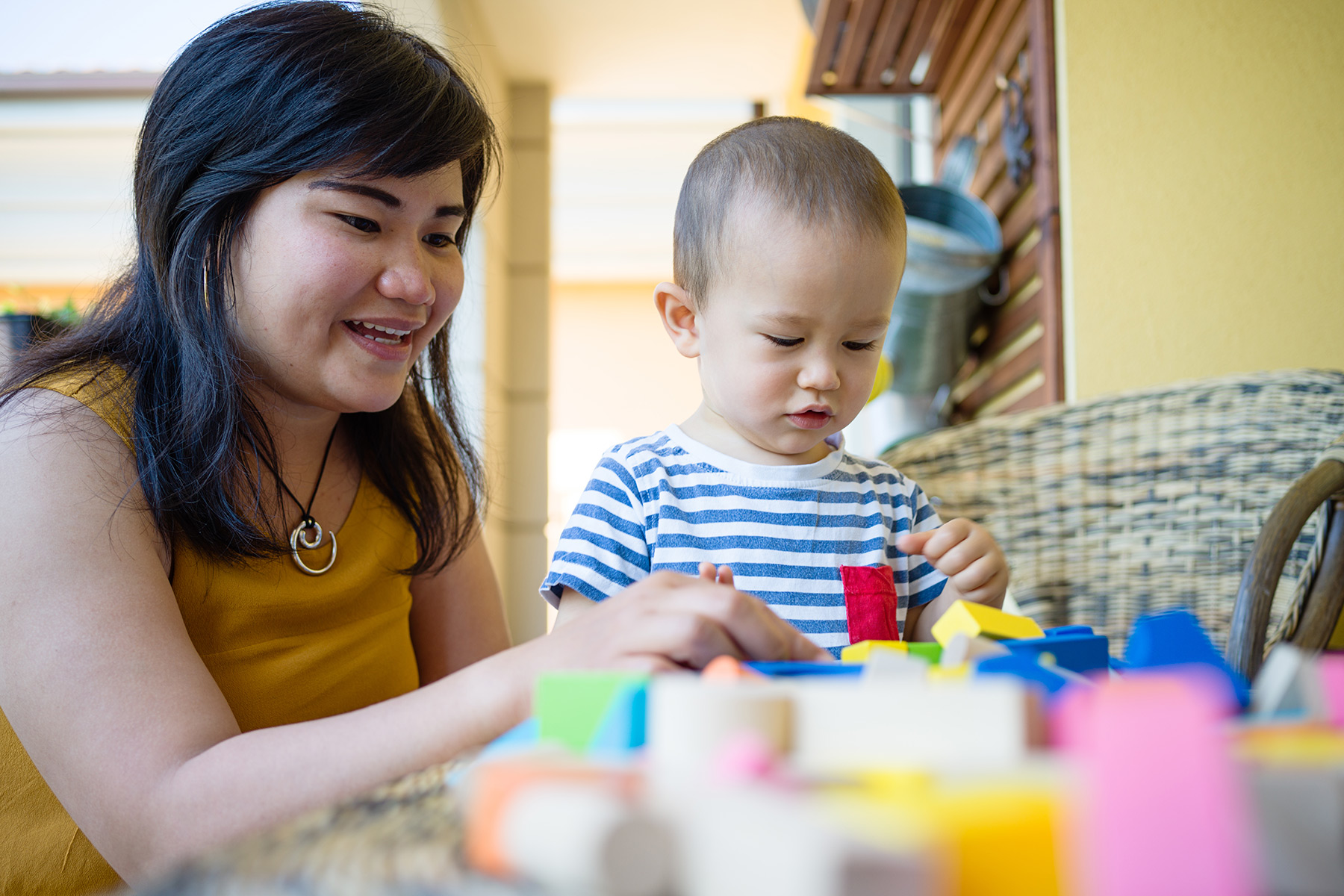
Once you know you are having a baby in Italy, it’s best to talk to your employer about leave as soon as possible. Those seeking parental leave should do so before maternity leave begins. However, you do have until a year after your eligibility period to apply.
Italian child benefits
The Italian government provides child benefits to parents of under-21s and children of any age with a disability. The amount varies by family income and composition but is usually between €50 and €175 per child. Additionally, parents may also be eligible for a kindergarten bonus to help with the cost of childcare.
Useful resources
- Bellies Abroad – Site providing listing various prenatal providers and resources
- Childbirth Courses – More information about pre-birth courses
- Doctors in Italy – Online resource to find English-speaking doctors
- Prenatal Care Guide – information on testing and screenings by trimester


